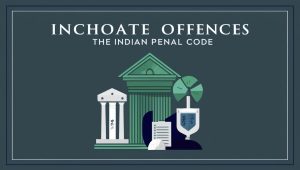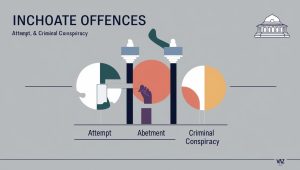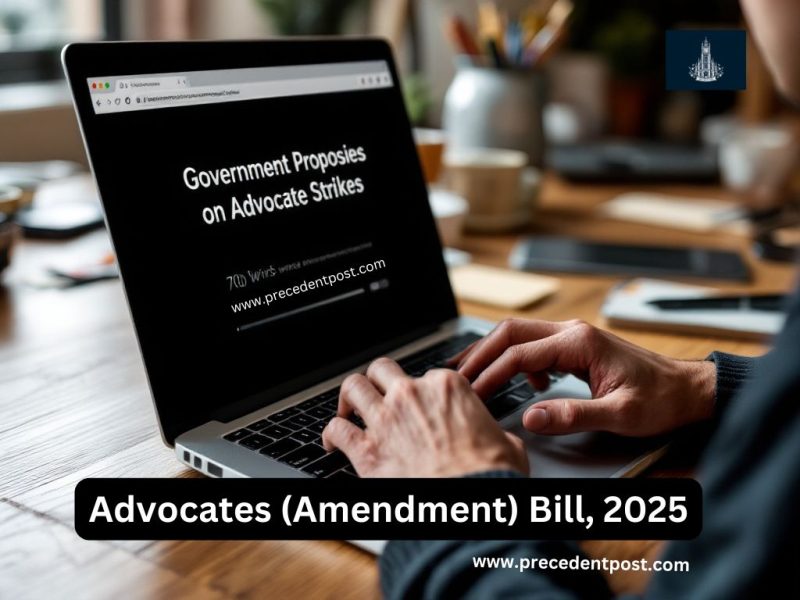New Delhi: Inchoate offences, derived from the Latin word “inchoatus,” meaning “just begun,” refer to criminal acts that are initiated but not completed. These offences are crucial in the Indian criminal justice system as they allow for intervention before the completion of a substantive crime, thereby preventing harm and maintaining public order. This article explores the general inchoate offences under the Indian Penal Code (IPC), including attempts, abetment, and criminal conspiracy, with a focus on their legal definitions, elements, and relevant case law.

Attempt
An attempt is defined as an act that is more than merely preparatory to the commission of an offence. The Indian Penal Code (IPC) governs attempts, stipulating that an individual is guilty of attempting to commit an offence if, with the intent to commit the offence, they perform an act that goes beyond mere preparation.
Elements of Attempt
- Intent to Commit the Offence: The defendant must have the mens rea, or guilty mind, intending to commit the substantive offence. This intent is a crucial element that distinguishes an attempt from mere preparation.
- Act More Than Merely Preparatory: The actus reus, or guilty act, must be more than merely preparatory. This requirement ensures that the defendant has taken significant steps towards committing the offence, crossing the threshold from preparation to attempt.

Case Law
In State of Maharashtra v. Mohammed Yakub [1980], the Supreme Court of India held that the defendant’s actions must have gone beyond the preparatory stage to constitute an attempt. This case emphasised the importance of the defendant’s conduct in demonstrating a commitment to carrying out the offence.
Abetment
Abetment involves instigating, engaging, or aiding another person to commit a criminal offence. It is governed by Sections 107 to 120 of the IPC, which provide a comprehensive framework for abetment.
Elements of Abetment
- Instigation: The defendant must instigate another person to commit a criminal offence. This can include persuading, encouraging, or inciting the other person to commit the offence.
- Engagement: The defendant must engage with one or more persons in a conspiracy to commit a criminal offence. This engagement is a crucial element of abetment, distinguishing it from other inchoate offences.
- Aid: The defendant must aid another person in committing a criminal offence. This can include providing assistance, tools, or information that facilitates the commission of the offence.

Case Law
In Ratanlal v. State of Madhya Pradesh [1967], the Supreme Court of India affirmed that abetment requires active participation in instigating, engaging, or aiding the commission of a criminal offence. This case highlighted the importance of the defendant’s role in facilitating the offence.
Criminal Conspiracy
Criminal conspiracy involves an agreement between two or more persons to commit a criminal offence. It is governed by Sections 120A and 120B of the IPC, which provide the statutory framework for criminal conspiracy.
Elements of Criminal Conspiracy
- Agreement: There must be an agreement between the parties to commit a criminal offence. This agreement is the core element of criminal conspiracy, distinguishing it from other inchoate offences.
- Intent to Commit the Offence: The parties must have the intent to carry out the agreed criminal act. This intent is essential for establishing the mens rea of criminal conspiracy.
Case Law
In State of Tamil Nadu v. Nalini [1999], the Supreme Court of India held that the agreement itself is sufficient to establish criminal conspiracy, even if the substantive offence is not committed. This case emphasised the importance of the agreement in proving the offence of criminal conspiracy.
Distinction from Substantive Offences
Inchoate offences are distinct from substantive offences in that they do not require the completion of the criminal act. Instead, they focus on the preparatory or ancillary actions taken towards committing a crime. This distinction is crucial for understanding the legal framework of inchoate offences and their role in preventing harm.
Case Law
In Ramesh Kalwani v. State of West Bengal [1966], the Supreme Court of India discussed the distinction between inchoate and substantive offences, highlighting the importance of inchoate offences in preventing the completion of criminal acts. This case emphasised the preventive role of inchoate offences in the criminal justice system.
Conclusion
General inchoate offences play a vital role in Indian criminal law by allowing for intervention before the completion of a substantive crime. Attempts, abetment, and criminal conspiracy are the primary inchoate offences, each with its unique elements and legal frameworks. Understanding these offences and their distinctions from substantive offences is essential for legal practitioners and students alike. By focusing on the preparatory and ancillary actions taken towards committing a crime, inchoate offences serve as a crucial preventive measure in the criminal justice system.
read more: Click here


